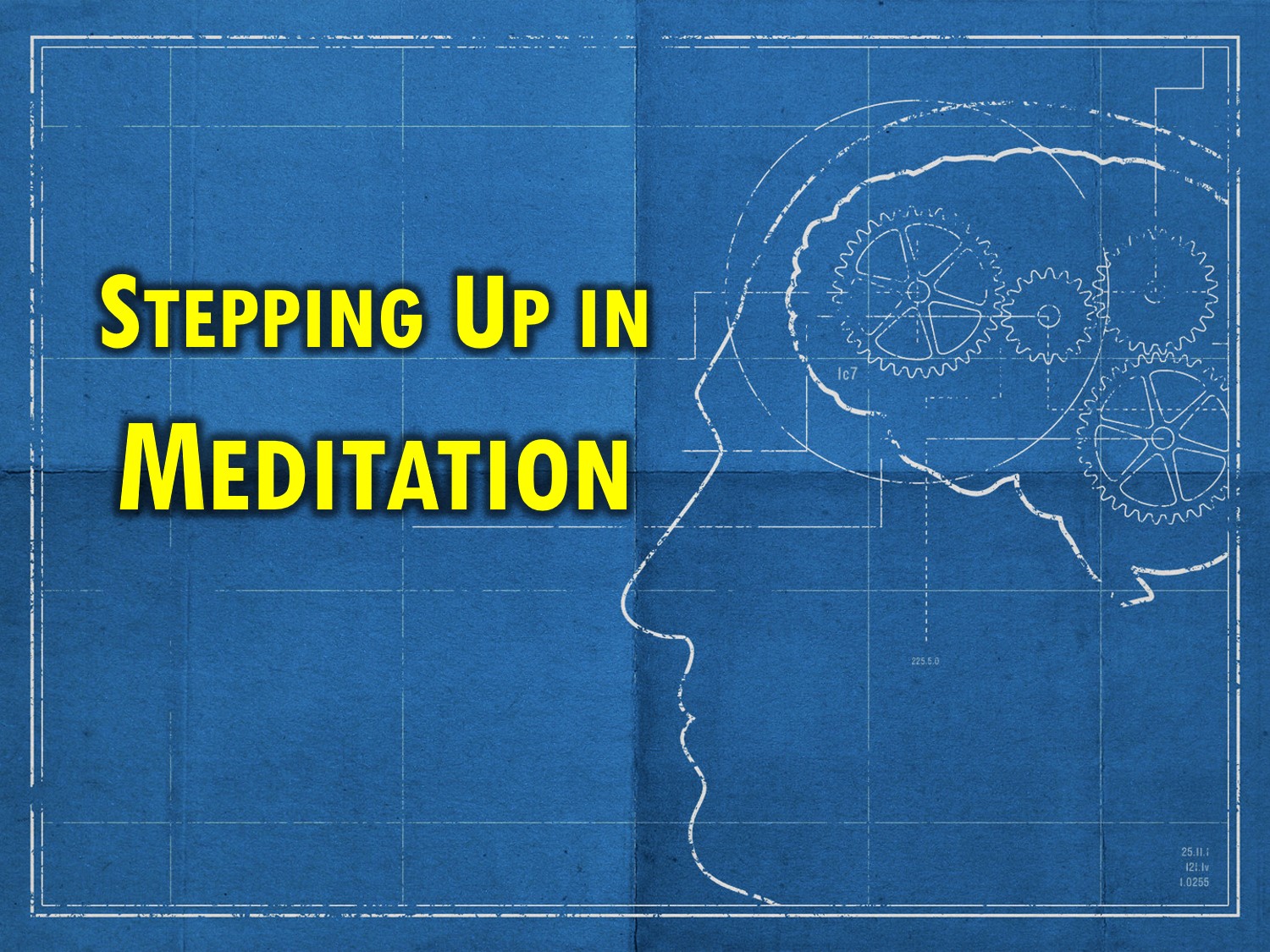Blog
I Am With You Always
Thursday, February 14, 2019

I am with you always,
Joining in each moment,
Sharing each emotion,
Tasting joy and weeping.
When your hours are lonely
And their joys desert you,
You are not forsaken;
I am with you always.
I am with you always,
When your foes assail you;
Though they press you greatly,
Still I will be greater.
Strong despite your weakness,
Faithful through your doubting--
Who can stand against you?
I am with you always.
I am with you always,
When your time is nearing;
Mine, the hand that guides you,
Ending to beginning.
When the darkness gathers
And your eyes are closing,
Hear My final whisper,
“I am with you always.”
The Hope That Is in Us
Wednesday, February 13, 2019

Like most Christians, I’ve heard plenty of teaching on 1 Peter 3:15. Indeed, I’m responsible for a fair amount of it myself. Typically, and rightly so, this verse is often brought up in the context of evangelism. In particular, teachers are concerned with the phrase, “Being prepared to make a defense.” They use it to argue that we need to Know Our Bibles. Gotta be ready to debate all those deluded denominationalists right into the baptistry!
However, during my recent Texas odyssey, I heard a fascinating sermon from Jeff Wilson that pointed out that this application is misguided. The text doesn’t say, “Being prepared to make a defense to anyone who asks you for a reason for your specific beliefs on salvation.” Instead, it says, “Being prepared to make a defense to anyone who asks you for a reason for the hope that is in you.”
That’s very different. We might be tempted to slap a generic definition on “hope”, but the context doesn’t allow us to do that. In 1 Peter 1:3-4, Peter is very specific that the hope is our hope of an eternal inheritance in heaven.
Indeed, he is very specific about the reason for that hope. It is the resurrection of Jesus Christ from the dead. When we are making a defense of the reason for the hope that is in us, we are talking about the resurrection and what it means for us.
1 Peter 3:15 is thus another piece of evidence that first-century Christianity was much more resurrection-centric than its 21st-century variant often is. “The gospel” isn’t the 27 books of the New Testament. It is the good news that eternal life is possible through the risen Lord. The vast importance of the cross is undeniable, but without the empty tomb, the cross is meaningless. Don’t take my word for it. Take Paul’s word for it, in 1 Corinthians 15:17.
“But what about baptism???” the legions of battle-hardened personal workers might cry. Frankly, if our teaching on baptism doesn’t start with the resurrection, we’re doing it wrong. As per Romans 6, baptism is best understood as a spiritual union with the death, burial, and resurrection of Christ. If you are buried with Him, you will rise to walk in newness of life like He did.
In fact, the more we exalt the resurrection, the more we also exalt baptism. If the resurrection is the central event of Christianity, it ought also to be the central event of becoming a Christian. What does the sinner’s prayer have to do with the resurrection? Nothing! What does baptism have to do with the resurrection? Everything!
This is the hope that is in us, the hope that we must defend whenever anyone asks. Christ is alive! The Scriptures prove it. Because He is alive, we can live too if we follow Him.
If that’s the defense we make, we might find a whole lot more people who are willing to listen.
Stepping Up in Meditation
Tuesday, February 12, 2019

In our first “Stepping Up” series of the year, Shawn and I have addressed four topics that are familiar to every Christian: prayer, Bible reading, worship, and obedience. I think all of us would agree that these are basic, foundational practices essential to our spiritual lives.
In the fifth and final sermon in this series, I’ll be examining a topic that I believe is no less important, but that is much less familiar. It is the subject of meditation. Biblical support for meditation is widespread. The word itself is used in 23 different places in the ESV, and the concept is commonplace throughout the Bible. It’s fair to say that meditation is no less important to our spiritual welfare than prayer, reading, worship, and obedience.
Nonetheless, I think brethren often don’t recognize how important it ought to be to them. Many of us don’t associate meditation with Christianity at all, and that’s something we need to work on. This morning, then, let’s consider how we can step up in meditation.
First, let’s ask WHAT MEDITATION IS. If I asked most of you, you’d probably come up with a mental image of some Buddhist monk sitting there cross-legged with his eyes closed, making the sacred sign with his hands. However, that’s not what Biblical meditation is about. Instead, consider what Paul writes in Philippians 4:8. Other translations here will say, “think on”, “dwell on”, or even “meditate on”.
In short, Bible meditation is when we take some wholesome, spiritual thought, and we spend some indefinite amount of time turning it over and over in our minds. Along with studying the word and reading the word, meditating on the word is supposed to be one of the main ways that we interact with it.
Nor does this even necessarily have to be about the Bible directly. You ever find yourself singing a hymn over and over to yourself, thinking about the words as you’re singing them? That’s meditation too. The same is true when we’re thinking about people we know who have revealed the word in their lives and considering the godliness of their actions.
This isn’t a high-intensity activity. Instead, it’s the opposite. Ideally, “thinking about these things” is what we find our minds doing whenever we aren’t using them for something else. We’re at the sink washing dishes, and lo and behold, we start meditating on the things of God! It’s not some fancy spiritual discipline. Meditation is as everyday as getting out of bed in the morning.
However, for all its everydayness, meditation is something we can’t do without. Let’s consider, then, WHY MEDITATION MATTERS. Look at Joshua 1:8. The logic here is very simple. If you talk about God’s word, meditate on God’s word, and obey God’s word, God will bless you. If you omit any of those steps, you won’t get the result.
Let’s put it this way. You ever known somebody who went to church faithfully, but was just as mean and hateful as they could be? People like that probably have a meditation problem. They hear the word, but they don’t take that word home and think it over. It just goes in one ear and out the other. As a result, when it comes time for them to make a moral decision, they don’t have the word in their hearts to guide them into godliness. The word has not changed them because they did not give it the opportunity to change them.
We have to do the opposite. We have to meditate on the word we have been taught so that it will change our hearts and our lives. Otherwise, it’s like trying to get bread to rise by dumping a bunch of yeast on top of the bread dough and letting it sit there. What happens if you do that, ladies? You get a floury, watery mess that doesn’t rise, that’s what! If we don’t knead the yeast into the dough, it can’t do its work. Meditation is kneading God’s word into our hearts. Unless we do that, we rob it of its power to transform us.
I want to spend the remainder of the sermon talking about HOW TO MEDITATE. First, we have to PUT TO DEATH THE EARTHLY. Let’s read here from Colossians 3:5-8. Notice that Paul isn’t merely warning us here about ungodly actions or ungodly speech. He’s warning us against ungodly thoughts. The problem is that it’s possible for us to meditate on evil things too, and when we’re working those into our hearts, they will surely corrupt us.
Let me give you an example. Like any of us, I face temptation, and one of the temptations I most struggle with is holding a grudge. My fleshly self wants to carry a grudge until it dies of old age, then have it stuffed and mounted!
That’s a problem not just because we’re supposed to be tenderhearted and forgiving, but because of what that grudge-holding will do to me or any of us. When I’m going around meditating on that grudge, first of all, it’s keeping me from thinking about whatever is true, honorable, just, and so on. All that good stuff has been blocked out.
Instead, I’m dwelling on evil things—the wrong that I think has been done me and the anger that I feel about it. I’m hardening my heart against other people, and I’m becoming more and more convinced of my own self-righteousness. Brethren, that kind of meditation is spiritual poison! None of us can afford to dwell on things like that!
Instead, we must STORE UP THE WORD IN OUR HEARTS. Look at the words of the psalmist in Psalm 119:11. We’ve said that meditation is thinking about godly things. Well, if we want those things in our heads to think about, we have to put them there in the first place, and we have to love them enough to dwell on them.
Meditation isn’t a self-starting activity. You don’t just say to yourself, “I’m going meditate on the things of God for the next 15 minutes!” I don’t know. Maybe that would work for you, but it would feel very unnatural and weird to me. Instead, I’ve found that the key is packing my brain so full of spiritual things that I can’t help but think about them.
That starts with our Bible reading. You know, it’s amazing that every one of us has in our possession at least one complete copy of the word of God. Our first-century brethren would have turned green with envy! What a priceless opportunity every one of us has, every day, to put that word in our hearts so we can meditate on it!
The same is true with other sources of spiritual wisdom. I know people who keep hymnals on their bedside tables and read a hymn or two every night before turning in. Among our hymns are some of the most beautiful things ever written in the English language. They’re perfect for meditation! If that’s not enough, we need to spend more time with strong Christians whose words and conduct will give us good things to dwell on. The more time we spend with these things, the more we will learn to love them, and the more we will meditate on them.
Chapter Summaries, Job 1-5
Monday, February 11, 2019

Job 1 sketches out both the prosperity and the downfall of the title character. The first eight verses paint him as a man who has everything in both a physical and spiritual sense. He is as righteous as he is wealthy. However, his prosperity and righteousness attract the attention of Satan, who claims that the second is the result of the first. Satan seeks and receives permission from God to take away all of his blessings without harming his health. Satan does precisely this, using various means to destroy not only Job’s flocks and herds, but also his children.
Job 2 is more of the same. God and Satan have another conversation. God points out that Job, despite having lost his prosperity, has not ceased to be righteous. Satan promises different results if he is allowed to up the ante, attacking Job’s health as well. God gives Satan permission, and now Job has a plague of boils to go along with his other problems.
Job’s calamities begin to draw notice from others. His wife tells him to curse God and die. Job righteously refuses. Then, three of Job’s friends, named Eliphaz, Bildad, and Zophar, show up. They sit in mourning with him for a week, saying nothing.
Job 3 contains the first of Job’s poetic speeches. He begins it by calling a curse down on the day of his birth and the night of his conception. In Job’s view, both the day and the night have betrayed him because they allowed him to exist. He would have been far better off if he had never been born. He considers the dead with longing because they no longer have to suffer.
Instead, he wants to know why he continues to exist. For him, there is no joy in life, only suffering. The key question appears in v. 23, in which Job asks why life continues to be granted to him when God clearly is set against him.
Job 4 is the beginning of Eliphaz’s first speech. Eliphaz accuses Job of being ready to dish out spiritual correction but not so ready to take it. He then maintains that the innocent are never oppressed by God. Instead, God only makes the wicked suffer. Eliphaz then relates a vision that he saw. In this vision, a fearsome specter points out that it is impossible for man to be right in the sight of God. Even angels transgress, and we’re nothing next to them! People perish because of their sins.
Job 5 continues Eliphaz’s narrative. He points out that in his experience, it is the wicked and foolish who suffer. They bring it on themselves. He encourages Job to turn to God, who rescues the poor and needy while bringing down the proud. He thinks that Job needs to accept God’s rebuke, implying, though not saying, that he thinks that Job’s problems are sin problems. Once Job is willing to do that, all of his difficulties will clear up. Repent, Job. It’s for your own good.
Compassion in Jonah
Friday, February 08, 2019
.jpg)
A few weeks ago, after I finished going through Jonah in my daily Bible reading, I posted on Facebook, “I love the book of Jonah! It is both warm and subtle.” In what is perhaps a sign that I deadpan too much on Facebook, most who responded thought I was joking. Those who took me seriously, seriously disagreed.
Apparently, an explanation is in order!
I think part of the problem is that when most Christians think of Jonah, they think of the eponymic prophet and his encounter with the not-whale. The story is dramatic, but it is admittedly not very cozy. However, the book is not about Jonah’s ingestion by a great fish, nor even about his preaching mission to Nineveh. As impressive as those things are, they’re not the point. Instead, the theme of the book is God’s efforts to teach His wayward prophet compassion.
Think about it. In the opening scene of the book, God tells Jonah to go to Nineveh, and Jonah heads in the opposite direction, presumably because he isn’t terribly interested in saving the Ninevites. At this point, God would have been fully justified in turning Jonah into a grease spot. However, he doesn’t. Instead, He sends Jonah on his undersea journey to give him time to repent, just as He wants to give Nineveh time to repent.
Jonah does, and once he’s back on dry land, he grudgingly goes to Nineveh. Then, he warns the people of God’s impending judgment, even though he really wants to see them destroyed. However, the outcome is exactly what God wants to see, and exactly what Jonah doesn’t want to see. The city repents en masse, and disaster is averted.
Jonah, however, remains as hard-hearted as ever. He camps out on the hills above the city, hoping that God will change His mind and destroy it (the opposite of Abraham’s perspective on Sodom, if you think about it). In one last attempt to correct His wayward prophet, God raises up a plant to shade him and then kills it. When Jonah gets upset, God points out that if Jonah is right to get emotionally attached to a plant, God is right to feel compassion for a city filled with human beings.
This is a story that gives me a great deal of hope. It clearly reveals the depth of God’s compassion, not only for Nineveh, but for one of His own who repeatedly refuses to get it. I’m glad I serve a God like that, not least because of all the times when I have repeatedly refused, and probably still do repeatedly refuse, to get it. I am a daily witness to the greatness of His mercy.
Second, the story of Jonah illustrates God’s patience. Despite multiple provocations, God doesn’t give up on Jonah. Instead, He continues teaching him, right up to the last sentence of the book. As a disciple of Jesus, I know that I am very much a work in progress, and I am thankful that God will patiently continue His work in me and not give up on me.
Is a book filled with storms and judgments stereotypically warm? Well, no, but every time I read it, I find myself warmed anyway. The conflict in it isn’t God’s fault, but Jonah’s. The compassion, though, all belongs to God.


